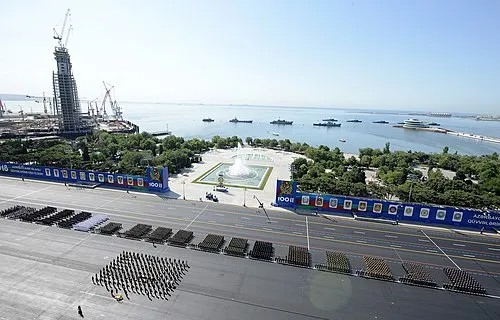
Armed Forces Day: Celebrating Lebanon's Military Heritage
Armed Forces Day in Lebanon is a significant national holiday celebrated annually on the first of August. This day honors the dedication and sacrifices of the Lebanese Armed Forces (LAF) and serves as a reminder of the country's commitment to sovereignty, security, and peace. It is a day of pride, reflection, and appreciation for the military personnel who serve their nation.
The History of Armed Forces Day
Armed Forces Day was first established in 1945, following the formation of the Lebanese Army in 1943. This day was designated to commemorate the integration of various military factions that were active during Lebanon's tumultuous early years. The goal was to unify and strengthen the armed forces, ensuring they could effectively protect the country and maintain peace among its diverse communities.
The Significance of Armed Forces Day
This day is not just a commemoration of military history but also a celebration of national unity. The Lebanese Armed Forces symbolize strength and resilience, playing a pivotal role in maintaining stability in the country. Armed Forces Day serves to boost morale among soldiers and civilians, fostering a sense of pride in the military's achievements.
Celebrations and Activities
Armed Forces Day is celebrated with various events and activities across Lebanon. Military parades are a key feature, showcasing the capabilities and discipline of the armed forces. These parades, often held in the capital, Beirut, include a display of military equipment and personnel, attracting thousands of spectators.
In addition to parades, the day is marked by speeches from military leaders and government officials who pay tribute to the sacrifices made by soldiers. Cultural events, exhibitions, and community gatherings also take place, allowing civilians to show their support for the armed forces.
Promoting National Unity
Armed Forces Day is an essential platform for promoting national unity among Lebanon's diverse sects and communities. It emphasizes the importance of the armed forces in maintaining peace and security, promoting understanding and cooperation among citizens. The participation of various leaders from different backgrounds during the celebrations symbolizes the collective effort to build a united Lebanon.
Current Challenges and the Role of the Armed Forces
In recent years, Lebanon has faced a myriad of challenges—including political instability, economic hardship, and regional conflicts. The armed forces have been pivotal in navigating these hurdles, often stepping in to provide humanitarian assistance and emergency response during crises. Armed Forces Day acknowledges these ongoing efforts, reminding the public of the military's critical role in safeguarding the nation.
Conclusion
Armed Forces Day in Lebanon is more than a public holiday; it is a celebration of resilience, pride, and unity. As the country continues to face challenges, this day serves as a reminder of the strength of its military and the importance of cooperation among its citizens. By honoring the armed forces, Lebanon reaffirms its commitment to a secure future, where peace and stability can prosper.





